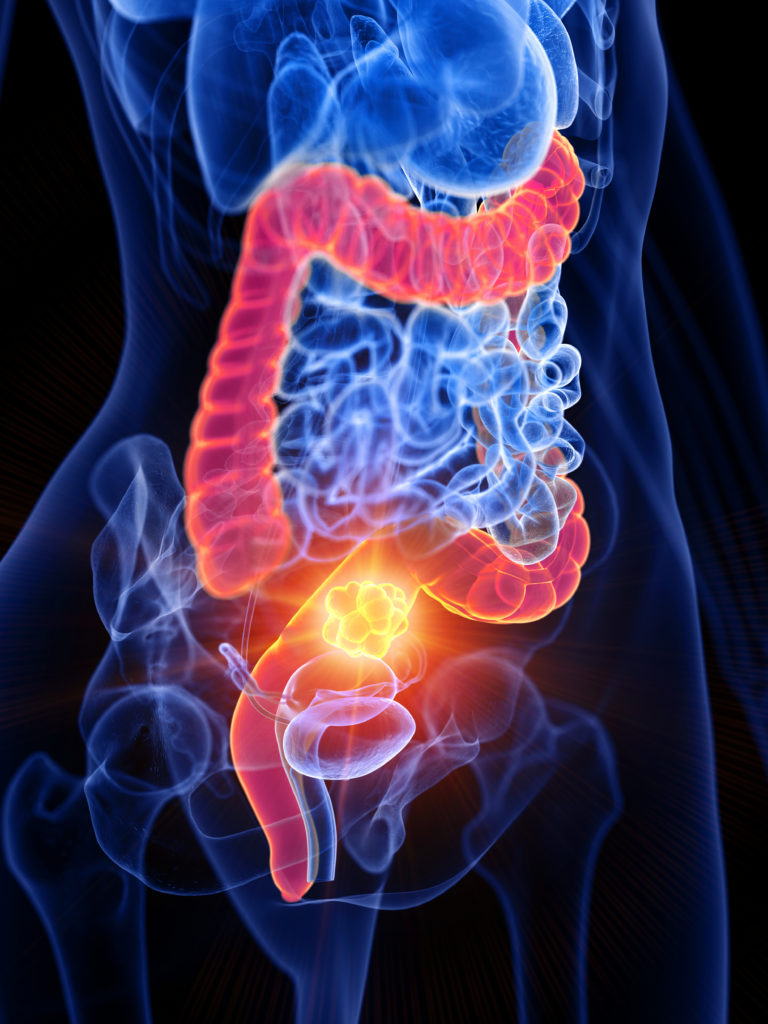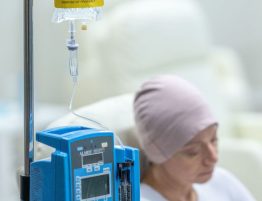
The colon is the large intestine (bowel) and the rectum is the end of the bowel where stools are stored. Ulcerative colitis is a long-term condition where the colon and rectum become inflamed.
This inflammation produces tiny sores called ulcers on the lining of the colon. It usually begins in the rectum and spreads upwards. It can involve the entire colon.
The inflammation causes the bowel to move its contents rapidly and empty frequently. As cells on the surface of the bowel die, ulcers form. The ulcers may cause bleeding and discharge of mucus and pus.
Symptom of Ulcerative Colitis
Ulcerative colitis symptoms can vary, depending on the severity of inflammation and where it occurs. Signs and symptoms may include;
- Diarrhea, often with blood or pus
- Abdominal pain and cramping
- Rectal pain
- Rectal bleeding – passing small amount of blood with stool
- Urgency to defecate
- Inability to defecate despite urgency
- Weight loss
- Fatigue
- Fever
- In children, failure to grow
Most people with ulcerative colitis have mild to moderate symptoms. The course of ulcerative colitis may vary, with some people having long periods of remission.
Types of Ulcerative Colitis
The type of ulcerative colitis a patient has depends on where it’s located in the body;
Ulcerative Proctitis – usually the mildest form. It’s only in the rectum, the part of the colon that is closest to the anus. Rectal bleeding may be the only sign of the disease.
Proctosigmoiditis – the rectum and lower end of the colon. Patient will have diarrhea, belly cramps, and pain. Patient will have the urge to poop but won’t be able to.
Left-sided Colitis – it causes cramps on that side of the patient’s belly. They will also have bloody diarrhea, and they might lose weight without trying. They will have inflammation from the rectum up through the left side of the colon.
Pancolitis – it often affects the patient’s entire colon. It can cause severe bouts of bloody diarrhea, belly cramps, pain, fatigue, and major weight loss.
Acute Severe Ulcerative Colitis – is a rare type. It affects the patient’s entire colon and causes severe pain, heavy diarrhea, bleeding, and fever.
Ulcerative Colitis Diagnosis
- Blood tests can show if the patient has anemia or inflammation.
- Stool samples can help the doctor rule out an infection or parasite in the colon. They can also show if there’s blood in the stool that the patient can’t see.
- Flexible sigmoidoscopy lets the doctor look at the lower part of the colon.
- Colonoscopy is the same process as flexible sigmoidoscopy, only the doctor will look at the patient’s whole colon, not just the lower part.
Treatment
Ulcerative colitis treatment usually involves either drug therapy or surgery.
Several categories of drugs may be effective in treating ulcerative colitis. The type the patient takes depends on the severity of their condition and location. The drugs that work well for some people may not work for others, so it may take time to find a medication that helps the patient.
- 5-aminosalicylic Acid (5-ASA)
- Corticosteroids
- Immunomodulator drugs
- Azathioprine (Azasan, Imuran) and mercaptopurine (Purinethol, Purixan)
- Cyclosporine (Gengraf, Neoral, Sandimmune)
- Tofacitinib (Xeljanz)
- Biologics
- Infliximab (Remicade), adalimumab (Humira) and golimumab (Simponi)
- Vedolizumab (Entyvio)
- Surgery
There’s no cure, and people usually have symptoms off and on for life. But the right treatments can help you keep a handle on the disease.
What We Offer
We at Almurshidi Medical Tourism will find the best doctors to cater to your needs. We are partnered with a wide network of hospitals and clinics that provide top quality medical experience.
We provide free medical estimates, make medical appointments, and provide several medical opinions if needed at no cost.
Contact Us
For more information contact us at +66822004040 or via WhatsApp







